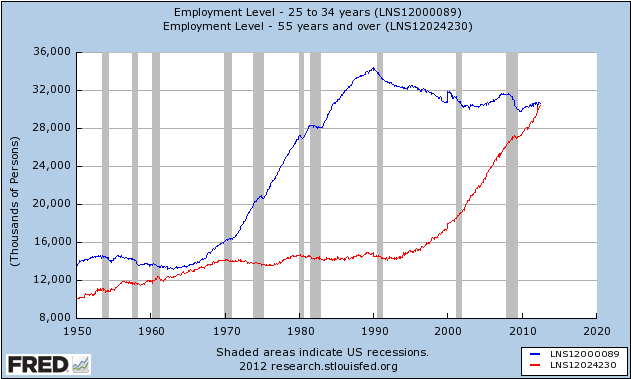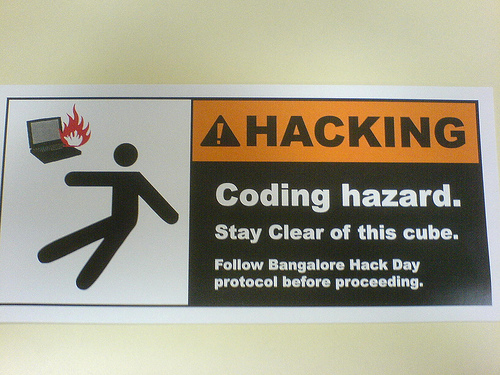More Data for HR Geeks: Wow, it's getting old around here
Last week Kris over at the HR Capitalist ran a cool piece titled Economics for HR Geeks: The Quitter's Index, where he called out the BLS data indicating that more Americans are now quitting their jobs than being fired/laid off/downsized. There are lots of possible reasons for this shift, but the takeaway for the talent pro is that more people are open to a voluntary move than in the last few, recessionary years. The climate for recruiting and retention is starting to shift.
In the spirit of KD's piece, I thought I'd offer a similar, geeky chart for your perusal, first spotted over at Business Insider last week. Have a look at the below graph, that shows the total US employment level for two age cohorts, those from 25-34, and those 55+, and I'll make some (obvious) observations after the data sinks in.

Yep, really soon, and for the first time since anyone started keeping track, the number of workers 55 and older will exceed those aged 25-34, typically the next generation of talent that so many firms are trying to recruit, develop, and retain.
Many workers north of 55 have seen their retirement plans put on hold, some for a few years, many for longer, as the combination of recession, slowly recovering equity markets, and lots of 20-something kids still living at home as they remain persistently unemployed or underemployed themselves.
Have you walked around the office lately and thought to yourself, 'Wow, when did everyone start to look so old?'. If you haven't noticed, don't worry, you probably will soon. And after you take note, maybe its time to think about the makeup of your specific workforce, in total and in important segments, to see whether or not you are seeing this trend play out for your company, industry, and region.
And then maybe take a few minutes more to think about what that all means for your 3, 5, and 10 year plans for recruiting, retention, benefits, work assignments, facilities, management succession, and more.
Gettind old can be a drag. It can be a real drag when it happens to everyone at once.
FYI - the chart was originally created on the FRED site, which is an absolute gold mine of information. Check it out sometime.

 Steve
Steve


